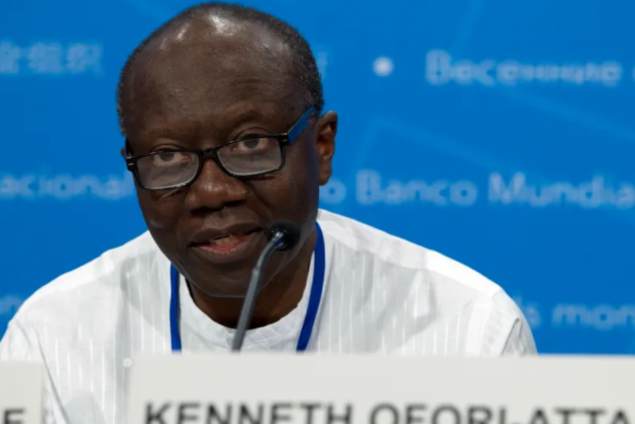Finance Minister, Ken Ofori-Atta, has outlined five key measures necessary for the government to pursue in order to secure an International Monetary Fund (IMF) support programme.
They are electricity tariff hikes which have brought the cumulative increase to 60% since August 2022 and Comprehensive set of revenue-enhancing measures, including increase in the Value Added Tax rate and the review of the Electronic Transaction Levy (E-levy).
The rest are the enactment of an ambitious 2023 Budget, with a frontloading of the fiscal consolidation programme, continued monetary policy tightening to bring inflation under control and comprehensive set of structural reforms, notably public expenditure review.
These were captured in the Investors Presentation by the Finance Minister and supported by the Governor of the Bank of Ghana, Dr. Ernest Addison.
With regard to fiscal and debt sustainability, the Finance Minister said the government has undertaken fiscal adjustment with revenue and expenditure measures to improve debt sustainability and restore macroeconomic stability.
This is expected to address structural bottlenecks including contingent liabilities of State Owned Enterprises, commitment controls and arrears accumulation as well as domestic revenue mobilization.
On monetary and financial sector reforms, Mr. Ofori-Atta said government is committed to rebuilding reserve buffers, mobilize external concessional financing from multilateral and bilateral partners, and suspend external debt service payments.
With regard to social protection and structural reforms, the Finance Minister said government will safeguard social protection programmes and ensure the burden of adjustment is fairly distributed.
Again, it will reinforce and improve the targeting of social spending to protect the most vulnerable from the impact of the economic crisis as well as fast-track the implementation of growth-oriented socio-economic policies, such as Ghana CARES to mitigate the impact of the pandemic and support economic recovery.
Government outlines 5 ambitious macroeconomic targets
Meanwhile, the government has outlined five ambitious macroeconomic objectives in the medium term as part of securing a programme from the International Monetary Fund.
They are reaching a 1.5% of Gross Domestic Product primary surplus in the medium term, bringing inflation below 8% in the medium-term and restoring external buffers with gross international reserves reaching 3 months of import cover by 2026.
The rest are reaching a real Gross Domestic Product growth target of 5% over the medium-term and enhancing competitiveness with exports surpassing 37% of GDP in the medium run.
Latest Stories
-
Boakye Agyarko urges reforms to revitalise NPP after election defeat
12 minutes -
Finance Minister skips mini-budget presentation for third time
13 minutes -
‘ORAL’ team to work gratis – Ablakwa
21 minutes -
Affirmative Action Coalition condemns lack of gender quotas in Transition, anti-corruption teams
30 minutes -
December 7 election was a battle for the ‘soul of Ghana’ against NPP – Fifi Kwetey
31 minutes -
Social media buzzing ahead of Black Sherif’s ‘Zaama Disco’ on December 21
46 minutes -
Afenyo-Markin still suffering from the massive defeat – Fifi Kwetey
53 minutes -
Retain Afenyo-Markin as NPP leader, he has experience – Deputy Speaker
1 hour -
Kufuor didn’t leave behind a strong economy – Fifi Kwetey
1 hour -
It won’t be business as usual, remain humble – Fifi Kwetey to party members
2 hours -
Ebenezer Ahumah Djietror appointed as new Clerk to Parliament
3 hours -
Actress Benyiwaa of ‘Efiewura’ TV series dead
3 hours -
Ashanti Regional Chief Imam dies at age 74
4 hours -
Africa Arts Network calls for tax reform to save Ghana’s theatre industry
4 hours -
SSTN Ghana Chapter reaffirms commitment to economic growth under new leadership
4 hours

